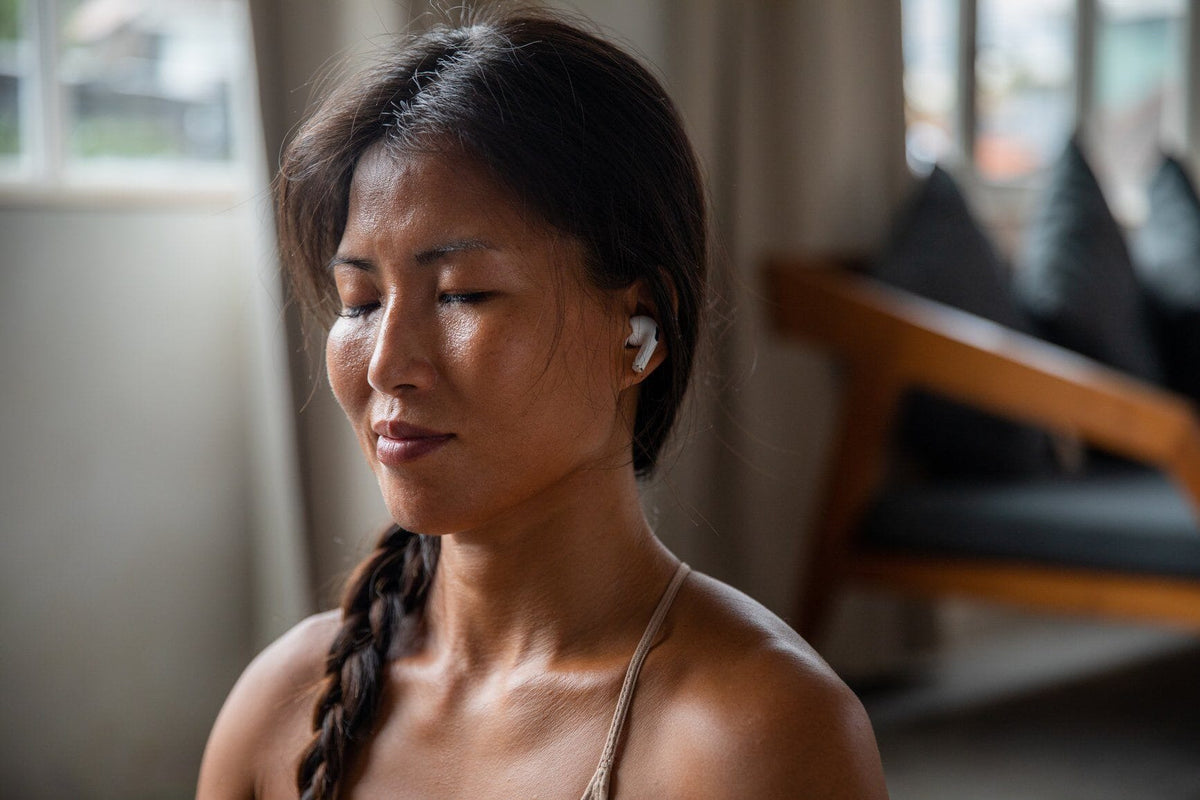Did you know that the hormonal fluctuations caused by perimenopause and menopause can potentially alter your mood and affect anxiety levels? Many women are surprised to learn just how common increased feelings of anxiety are during the menopausal transition. Anxiety can present itself in different ways but is commonly characterized by nervousness or irritability, feelings of impending doom or danger, increased heart rate, sweating, trouble sleeping, GI problems, and general unrest.
Aren’t you anxious after just reading that?
According to the Anxiety and Depression Association of America, women, from puberty to age 50, are more than twice as likely as men to experience anxiety or to develop an anxiety-related disorder. Read that again: twice as likely as men! Not only that, but 23% of women experience anxiety as a symptom of menopause or perimenopause.1
All of this is meant to say that it’s normal to feel anxiety during menopause. So, it’s important to understand what may be triggering it, how to handle it, and ways to prevent anxiety in the future.
Menopause and Anxiety
You may be wondering, can menopause cause anxiety? Another common question women ask is, does menopause increase anxiety? And if so, how long does menopause anxiety last? Many of the symptoms that women experience during menopause and perimenopause can cause anxiety. If you are constantly worried that you will experience a hot flash or bout of dizziness, then you may develop anxiety about those symptoms. In addition to these indirect causes of anxiety, the Cleveland Clinic2 notes that the fluctuating levels of estrogen and progesterone that accompany menopause can also cause anxiety. And while women who have a history of anxiety and chronic panic attacks are more likely to experience anxiety during menopause and perimenopause, there is no cut-and-dry way to tell if you will experience anxiety during menopause.
Is Anxiety a Symptom of Menopause?
The Calm Clinic3 notes that anxiety during menopause may be caused by a combination of hormone mediated anxiety, hormone exacerbated anxiety, and anxiety caused by menopausal symptoms. Fluctuating hormone levels can cause anxiety, and they can make preexisting anxiety worse. There are other menopause-related symptoms that can cause anxiety, too. Something that may help is trying to track which types of anxiety you are experiencing, and in what environment, in order to find ways to reduce potential triggers.
Identifying Anxiety Triggers During Menopause
Anxiety triggers are different for every woman, so it’s important to recognize what triggers anxiety for you. Try keeping a journal to track your environment and mood before anxiety sets in. If you notice that you begin to feel anxious in the middle of a hot flash, try treating your hot flashes in order to indirectly address your anxiety.
When you find yourself starting to feel anxious during menopause or perimenopause, you can act before it worsens. Finding ways to restore and maintain a sense of calm are key in mitigating anxiety. The options are countless, and you’ll need to figure out what works best for you, but here are a few places to start:
- Consider asking a friend if you can call to talk to them when you start feeling anxious. Breathing exercises can be hugely helpful in countering anxiety. If you feel your heart rate increasing, try taking deep breaths in through your nose and out through your mouth for a few minutes.
- Make yourself a cup of tea and sit in stillness for a few minutes to re-center yourself.
- Try going outside; spending time in nature may help to reduce the effects of anxiety.
How to Prevent Future Anxiety in the Future
Getting enough sleep and engaging in regular exercise can help reduce anxiety at any stage of life. Yoga and meditation can lower blood pressure and abate anxiety. According to HealthyWomen,4 cutting out alcohol and caffeine can lower your risk of experiencing anxiety during menopause, as well.
If lifestyle changes are not working, you may want to consider seeking medical attention. Make sure you explain your triggers and current coping methods to your healthcare professional so that they can work with you to eliminate anxiety altogether.
Resources
- https://adaa.org/find-help-for/women/anxiety
- https://health.clevelandclinic.org/is-menopause-causing-your-mood-swings-depression-or-anxiety/
- https://www.calmclinic.com/anxiety/causes/menopause
- https://www.healthywomen.org/your-health/menopause-aging-well/menopause-and-anxiety-whats-connection









Comments
Post commentThis article was very informative and interesting… Thank you!